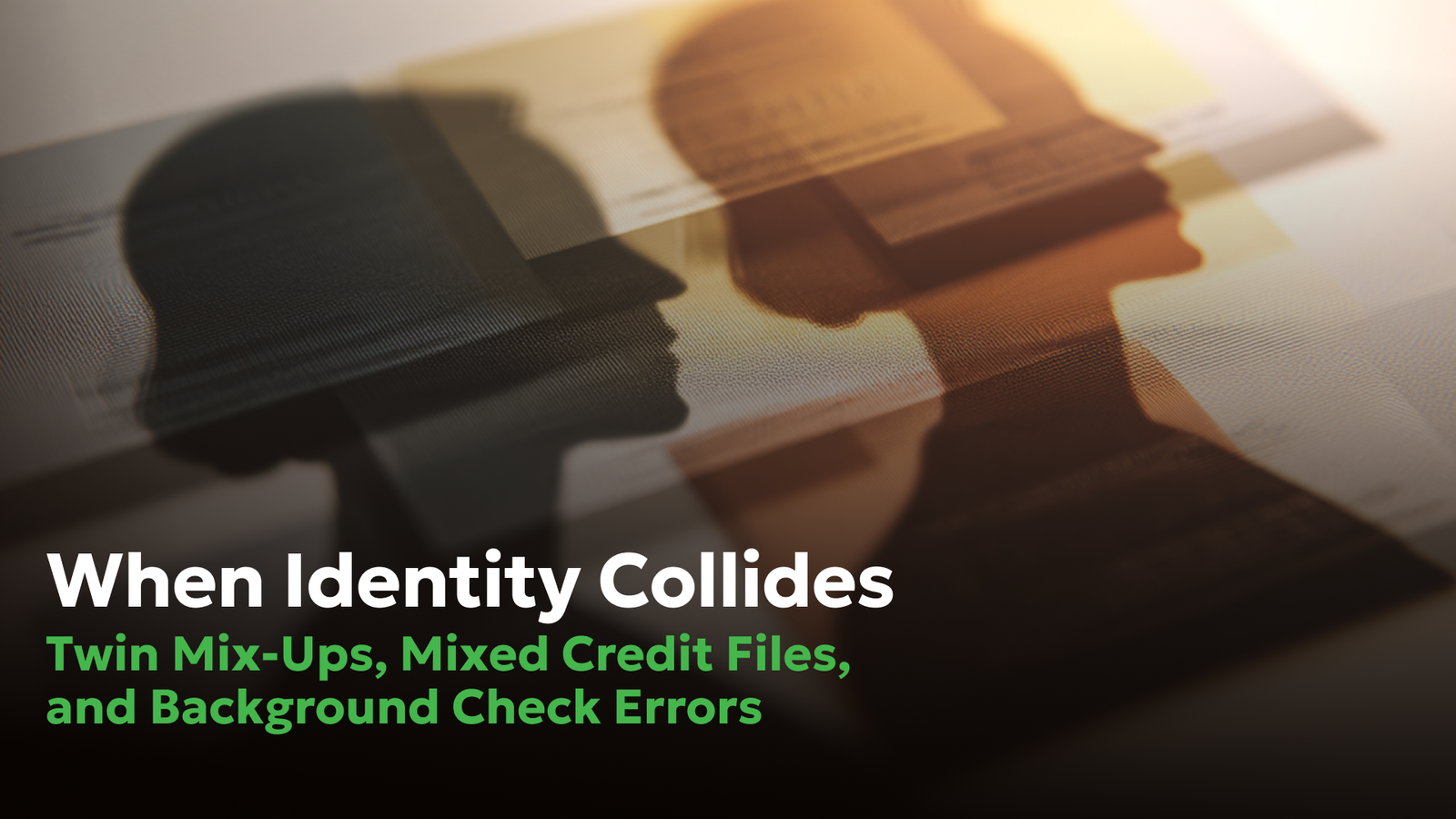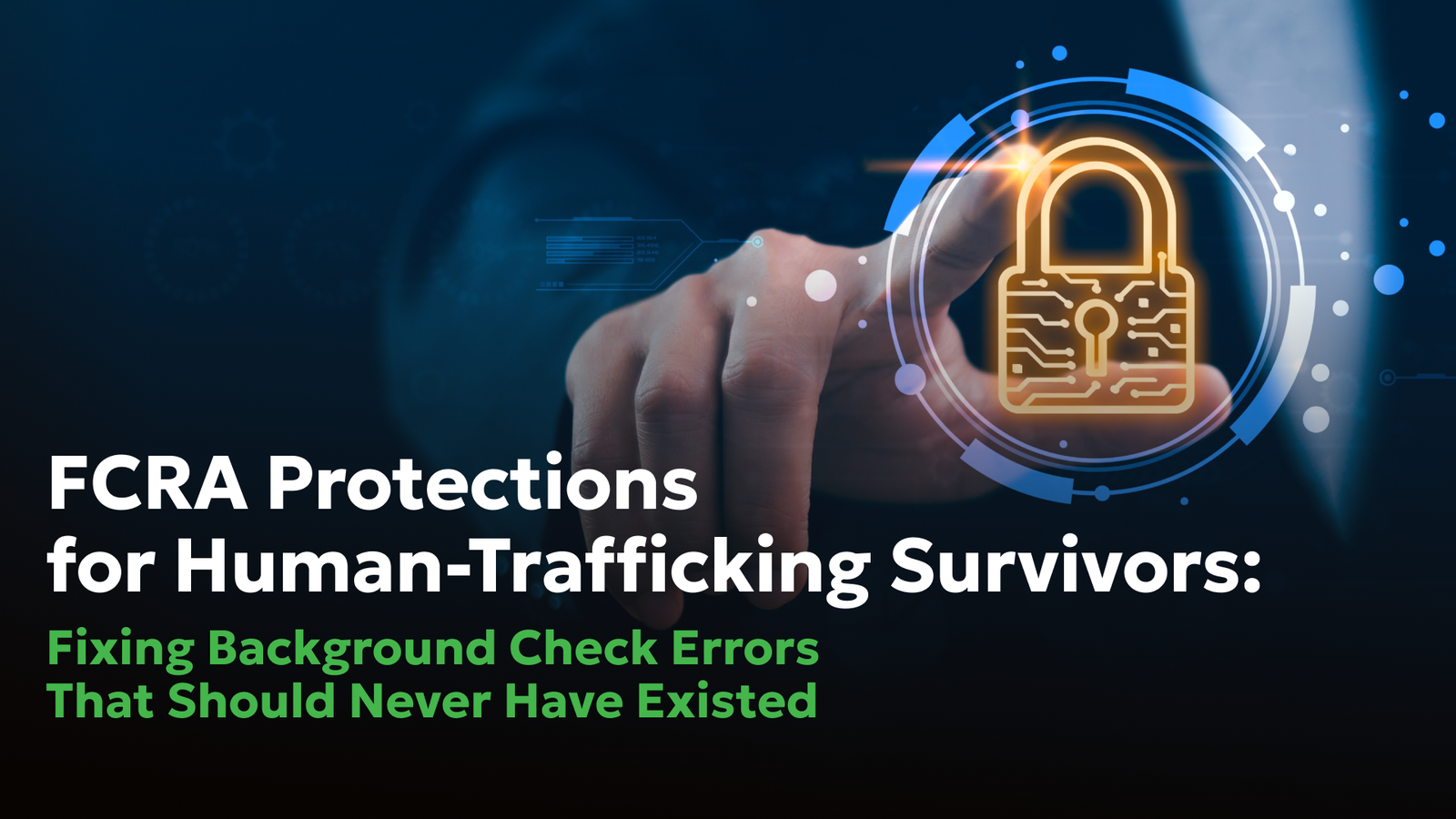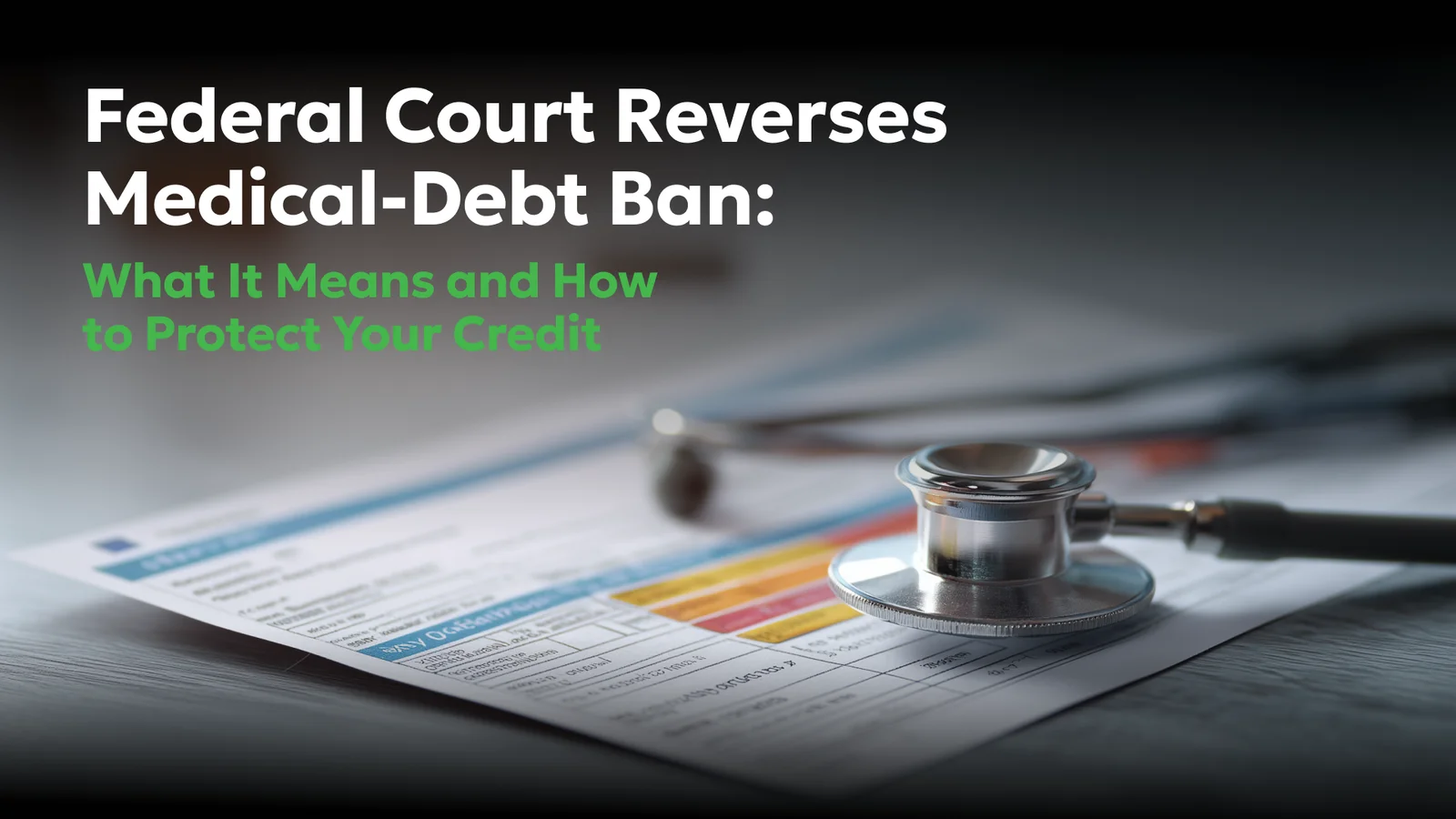How Long Does It Take to Dispute a Credit Report?
- Blog
- Credit Reporting Inaccuracies
How Long Does It Take to Dispute a Credit Report?

Understand Credit Dispute Timelines and Empower Your Finances with Consumer Attorneys!
Explore the intricacies of credit dispute timelines and reclaim control over your financial narrative. In this article, you’ll discover the process of disputing credit errors, important time frames, what you can do if a credit bureau rejects your dispute, and where to get help when you need it.
When you find an error on your credit report, the need to dispute your credit report quickly becomes essential in order to minimize any negative impacts. But how long does it take to dispute credit errors? Great question! According to the Fair Credit Reporting Act (FCRA), consumer reporting agencies, also referred to as “credit bureaus,” are required to investigate your dispute claims within 30-45 days. However, that doesn't mean a dispute to your credit report will be updated that quickly, especially if one of the credit bureaus makes a mistake. We will take a look at the typical dispute request times and steps to dispute information on your credit history.
What Is the Process of a Credit Reporting Dispute?
If you find an error in your credit report, you need to go through the credit report dispute process to get it corrected. Here are some helpful steps:
Step 1: Obtain your credit report
You are entitled by law to receive your credit reports. You can get your credit reports online at annualcreditreport.com. Since the dispute response time is of great importance when filing credit error disputes, reviewing your reports regularly can help you catch any errors quickly before too much time passes by.
Step 2: Identify inaccuracies
Once you get your credit reports, review them carefully. Any error, no matter the size, must be corrected.
Step 3: Gather relevant documents and other evidence
Look for documents that support your dispute. These documents can be financial, loan documents, contracts, leases, etc.
Step 4: Write your dispute letter
The dispute letter is important because it is the letter that will present your dispute to CRAs for each to review. This letter will emphasize the credit bureaus’ mistakes and highlight why they are mistakes, and what you would like to have happen (like reinvestigation or removal). You can find example dispute letters online via the Federal Trade Commission's (FTC’s) website or you can contact consumer law attorneys, and we can assist you with your dispute letter and the dispute process.
Step 5: Submit your dispute
Once your dispute letters are written, it is time to submit them (preferably via certified mail to preserve your legal rights.) Certified mail is recommended because sometimes filing disputes online will require you to waive your important rights, which sending via certified mail does not require. Dispute letters for each CRA should be mailed to the address found on the FTC’s website.
Step 6: Contact legal professionals
Contacting legal professionals who can assist you is a great starting point, and it’s not too late to contact a credit report attorney, even if you’ve started the dispute process. You can contact Consumer Attorneys at any point in your dispute process because we can meet you where you are.
It’s important to note that federal laws are in place that require CRAs to properly investigate your disputes. Typically, the investigation will take between 30 to 45 days.
How Long Does a Dispute on a Credit Report Take?
The major credit bureaus, Equifax, Experian, and TransUnion are required under the FCRA to investigate your credit report disputes within 30 days (45 days for more complex cases and those including documents). However, the full dispute timeline often varies but should not exceed the timeframe required by federal law.
What to Do if the Consumer Reporting Agency Refuses to Resolve the Dispute
If your dispute is denied because the creditor verifies the information is accurate, but you still believe it's incorrect, here's what you can do:
- Review investigation results carefully. You have a right to review dispute denial information and make sure the proper procedures were followed. This is also a good time to contact Consumer Attorneys! CRAs regularly engage in practices that simply reconfirm wrongful reporting.
- Submit additional information. You can request adding a statement detailing your claim along with providing additional information to resubmit the dispute. However, you need to be aware that this can take additional time and effort from you, with no guarantee that the dispute will be granted. It's best at this point to seek legal guidance.
- File a complaint. At this point in the process, some consumers believe the CRAs acted outside of the Fair Credit Reporting Act requirements for disputes. If accurate data isn't being properly reported, you can file a complaint with the Consumer Financial Protection Bureau (CFPB) or State Attorney General. If you choose to file a complaint against the CRAs, you will need to follow the proper steps to submit the dispute.
- Consult a Credit Report Attorney. If the CRA has engaged in inadequate or shoddy investigations and has not corrected the errors, you will likely need to work with an attorney. Legal counsel can provide you with guidance to dispute errors, file complaints against CRAs, and also file lawsuits if needed. No matter where you are in your process, you have a right to obtain legal assistance.
Does Contacting the Other Credit Bureaus Make Sense?
Yes, in certain instances, contacting the other credit bureaus does make sense if all three bureaus have reported the error on your credit profile. Errors don't always appear on all three credit reports. In such a case, you do not have to dispute with a credit bureau if the mistake has not been reported by that particular credit bureau.
However, if the error is reported across all three credit bureaus, disputing with just one bureau risks allowing inaccurate data to continue negatively affecting your scores with the other two. Therefore, submitting three separate dispute letters improves your chances of correcting invalid reporting.
What to Do If You Don't Like How Your Dispute Turned Out
If you aren't satisfied with the final results after you’ve disputed with the credit bureau, according to the Consumer Financial Protection Bureau (CFPB), you have the right to bring a lawsuit. If you believe a CRA denied your dispute and credit report error removal by mistake or unlawfully, you have the right to seek legal counsel and sue the credit bureau for damages and attorney fees.
Before Applying for New Credit, Review Your Credit Report
Before submitting any applications for extensions of credit, be sure to check your latest credit report for your real-time scores and to check if recent dispute corrections took effect properly across three bureaus. If you find that you need to dispute an entry on your credit report, you should do so as soon as you notice the mistakes.
We Can Help You with Your Disputes
Consumer Attorneys offer many services and have helped thousands of clients just like you in similar situations.
Whether you have questions upfront on the best dispute practices or need help handling denials, we're here to consult at any stage of the process. Contact us today for a free initial case evaluation. You will not be charged any fees unless we win the case for you. We can be contacted 24/7, including via email at info@consumerattorneys.com, via phone at 1-877-615-1725, and online through our LIVE chat feature!
Frequently Asked Questions
Yes, if you find inaccuracies on your credit report that might be damaging your rating, it's a very good idea to start the dispute process. Successfully correcting the invalid information helps improve your credit score. Additionally, state and federal laws, like those in the FCRA grant you the right to dispute credit report errors and to have them removed. The key to disputing errors on your credit report is to move as quickly and accurately as possible since these errors can cause your credit score to drop and adversely affect your creditworthiness.
Submitting an online dispute with a credit bureau directly through their website is typically the quickest initial way to get the dispute investigation process started however, it may not be the most effective, depending on the circumstances. We highly recommend disputing errors via certified mail because it’s a “paper trail” and will allow you to follow exactly when the dispute letters are delivered and signed. Additionally, certified mail usually does not require you to waive certain rights and protections that filing online may require you to waive. Overall, we recommend certified mail because it is both efficient and effective while protecting all of your rights throughout the dispute process.
If your dispute was approved, the credit bureaus must notify you of the dispute results and will also specify if the item was modified or removed based on the data being inaccurate and unverifiable. Credit bureaus must remove the item according to their findings that the item is erroneous. In such a case, the inaccurate data should not remain on your credit profile because that would be in direct violation of federal law. Once you are notified that the item was approved, you have a right to know the next steps and to seek legal guidance should you find that you were harmed as a result of the errors. Sometimes, simply removing the item may not be enough if you find that your credit has been significantly harmed, causing you to miss out on opportunities.
Your chances of winning a credit dispute depend on several factors, including the facts surrounding your case, how many items you’ve disputed, how long the credit bureau takes to investigate, the federal and state laws specific to your case, and the law firm representing you. The law firm you choose has a significant impact on the outcome of your credit dispute and your lawsuit should you file one. The lawyers at Consumer Attorneys have helped thousands of consumers hold large companies accountable, and no case is too small for us to consider. We’ve pretty much seen it all when it comes to credit disputes, and we are committed to helping you get the damages you deserve.
If the creditor reporting the disputed items verifies with the credit bureau that the data is accurate after conducting an investigation, and the information is, in fact, correct, then there may be no change. However, you still have options like adding an explanatory statement or reaching out to the lender to request an explanation and supporting documents. If you believe your credit dispute is denied in error you should move as quickly as possible to maximize your rights. For clarity and assistance, consulting a consumer protection attorney is the best next step.


Daniel Cohen is the Founder of Consumer Attorneys. Daniel manages the firm’s branding, marketing, client intake and business development efforts. Since 2017, he is a member of the National Association of Consumer Advocates and the National Consumer Law Center. Mr. Cohen is a nationally-recognized practitioner of consumer protection law. He has a we... Read more
Related Articles




R
ONGS™You pay nothing. The law makes them pay.






